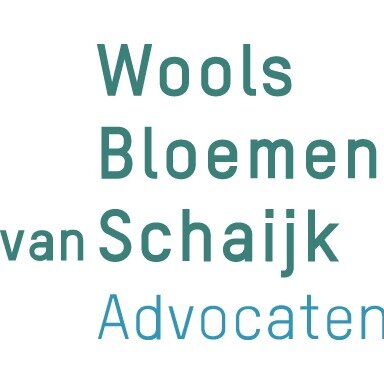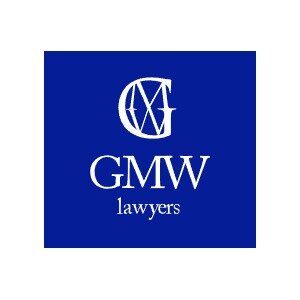Best Debt & Collection Lawyers in Netherlands
Share your needs with us, get contacted by law firms.
Free. Takes 2 min.
Or refine your search by selecting a city:
List of the best lawyers in Netherlands
About Debt & Collection Law in Netherlands
Debt & Collection law in the Netherlands is designed to regulate the process by which creditors can collect debts from debtors. This area of law seeks to balance the rights and obligations of both parties, providing mechanisms for creditors to recover owed money while protecting debtors from abusive practices. The legal framework encompasses various stages of debt collection, including friendly settlements, formal warnings, judicial procedures, and enforcement of court decisions. The goal is to ensure fair treatment and legal compliance throughout the debt recovery process.
Why You May Need a Lawyer
There are several situations where you might need legal assistance in the realm of Debt & Collection in the Netherlands:
- Unfair Treatment: If you feel you're being mistreated or harassed by creditors or collection agencies.
- Complex Contracts: Navigating complicated contracts related to loans or credit agreements.
- Disputed Debts: Challenging the validity of a claimed debt or the amount that is being demanded.
- Court Proceedings: Representing your interests in court, especially if a creditor has initiated legal action against you.
- Debt Settlement Advice: Structuring a feasible plan to settle outstanding debts, possibly avoiding bankruptcy.
- Insolvency Issues: Dealing with personal or business insolvency and the legal ramifications associated with it.
Local Laws Overview
The key aspects of local laws relevant to Debt & Collection in the Netherlands include:
- Consumer Credit Act: Protects consumers' rights with regard to credit agreements and ensures transparency and fairness.
- Debt Collection Process: Includes pre-judicial collection processes, judicial collection processes, and enforcement of judgments.
- Privacy Laws: Restrict how personal data can be used by creditors and collection agencies during the debt recovery process.
- Debt Restructuring (WSNP): Provides a legal framework for individuals unable to pay their debts, allowing for structured debt repayment plans under court supervision.
- EU Regulations: Influence cross-border debt recovery efforts and provide additional protective measures for debtors and creditors.
Frequently Asked Questions
What happens if I can't pay my debts?
If you're unable to pay your debts, you may face actions from creditors which could culminate in court proceedings. Seeking legal advice early can help in negotiating settlements or exploring debt restructuring options.
Can a collector contact me anytime?
No, there are specific regulations governing the times and methods by which collectors can contact debtors. Harassment and aggressive tactics are prohibited.
Is my privacy protected during the debt collection process?
Yes, strict privacy laws protect your personal information. Debt collection agencies must handle your data according to these regulations.
What should I do if I receive a court summons for a debt?
It's crucial to seek legal advice immediately to understand your rights and obligations and prepare your defense or negotiate a settlement.
Can I dispute a debt I don’t recognize?
Yes, you have the right to dispute debts. It's recommended to contact the creditor or collection agency and request detailed information regarding the debt.
What is the WSNP?
The Wet Schuldsanering Natuurlijke Personen (WSNP) is a legal debt restructuring program that helps individuals manage insolvency through a court-approved repayment plan.
How does a debt get collected through a court order?
If a court rules in favor of the creditor, the decision can be enforced through wage garnishment, bank account levies, or property seizure under certain conditions.
Do creditors have limitations on debt recovery methods?
Yes, they must adhere to legal boundaries which prevent practices such as harassment, misrepresentation, and the use of illegal means to recover debts.
Can debt affect my credit score in the Netherlands?
Yes, unpaid debts can negatively impact your credit score, affecting future borrowing capacity and financial opportunities.
What options exist for resolving outstanding debts outside of court?
Options include negotiating a payment plan, debt restructuring, or seeking assistance from a debt counselor for amicable resolutions.
Additional Resources
Here are some resources and organizations that may assist you with Debt & Collection in the Netherlands:
- Legal Aid Societies: Often offer free or low-cost legal advice to individuals in financial distress.
- National Credit Register (BKR): Provides information regarding your credit status in the Netherlands.
- Consumer Affairs Agencies: Can offer guidance and support if you face unfair treatment by creditors.
- Chamber of Commerce: Offers resources for business owners dealing with commercial debts.
- Government Debt Counseling Services: Provide support and advice for managing personal debts responsibly.
Next Steps
If you need legal assistance with Debt & Collection in the Netherlands, consider taking the following steps:
- Identify Your Needs: Clearly determine whether you need advice, negotiation support, or representation in court.
- Consult a Lawyer: Seek a qualified lawyer specialized in Debt & Collection to receive tailored advice for your situation.
- Prepare Documentation: Gather all relevant documents related to your debt, including contracts, correspondence, and financial statements.
- Contact Legal Aid Services: If cost is a concern, explore legal aid or pro bono services available to those in need.
- Consider Mediation: Explore alternative dispute resolution through mediation, which can be less formal and costly than court proceedings.
Lawzana helps you find the best lawyers and law firms in Netherlands through a curated and pre-screened list of qualified legal professionals. Our platform offers rankings and detailed profiles of attorneys and law firms, allowing you to compare based on practice areas, including Debt & Collection, experience, and client feedback.
Each profile includes a description of the firm's areas of practice, client reviews, team members and partners, year of establishment, spoken languages, office locations, contact information, social media presence, and any published articles or resources. Most firms on our platform speak English and are experienced in both local and international legal matters.
Get a quote from top-rated law firms in Netherlands — quickly, securely, and without unnecessary hassle.
Disclaimer:
The information provided on this page is for general informational purposes only and does not constitute legal advice. While we strive to ensure the accuracy and relevance of the content, legal information may change over time, and interpretations of the law can vary. You should always consult with a qualified legal professional for advice specific to your situation.
We disclaim all liability for actions taken or not taken based on the content of this page. If you believe any information is incorrect or outdated, please contact us, and we will review and update it where appropriate.
Browse debt & collection law firms by city in Netherlands
Refine your search by selecting a city.














